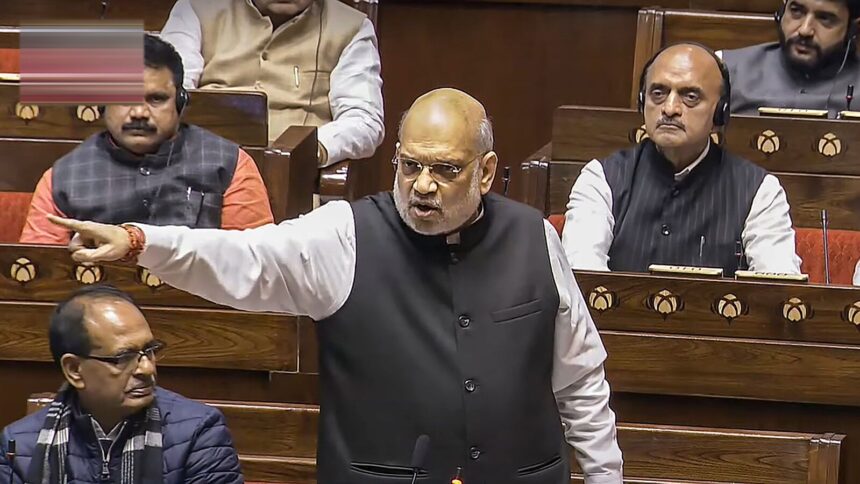Tensions Rise: Amit Shah’s Controversial Remarks on BR Ambedkar Spark Political Firestorm
In a recent session of the Rajya Sabha, Union Home Minister Amit Shah’s remarks regarding Dr. B.R. Ambedkar ignited a fierce political debate in India. Accusations of distortion and manipulation soon followed, as political leaders from the Congress party criticized Shah’s statements, claiming they exemplified a deep-seated contempt for Ambedkar and the very principles of the Indian Constitution.
The Context of the Controversy
During his speech on the Constitution, Shah took jabs at the Congress party, asserting that they had historically undermined Ambedkar’s legacy. He provocatively noted that previous Congress Prime Ministers had awarded the Bharat Ratna to themselves, while Ambedkar was only posthumously honored in 1990 when the BJP was not in power. Shah referred to Nehru’s purported "hatred" for Ambedkar, suggesting that the Congress legacy is fraught with anti-Ambedkar sentiment.
In this context, Shah described the frequent mention of Ambedkar by opposition leaders as a mere "fashion," stating, “If they had taken God’s name so many times, they would have got a place in heaven.” This controversial analogy has led many to accuse Shah of trivializing Ambedkar’s contributions to Indian society and of reducing an essential historical figure to a buzzword.
Responses from the Congress Party
In response to Shah’s comments, Congress President Mallikarjun Kharge demanded that Prime Minister Narendra Modi take immediate action, which included proposals for Shah’s resignation. Kharge’s argument centered around the idea that acknowledging Ambedkar’s contributions is integral to respecting the Indian Constitution and that Shah’s statements amounted to an insult to "a Dalit hero."
Shah, however, countered that the Congress party’s actions were designed to misinterpret his comments and distort the truth. He emphasized that the BJP has a history of respecting Ambedkar, challenging the Congress to reassess its portrayal of his legacy.
The Political Landscape
This exchange reflects a broader narrative within Indian politics. The BJP has consistently positioned itself as the protector of national pride and cultural values. Conversely, the Congress party aims to align itself with the values of social justice and inclusive governance that Ambedkar championed. This ideological battle, rooted in the legacy of independence and constitution-making, continues to shape India’s current political discourse.
Shah further claimed that the Congress party is anti-Reservation and anti-Constitution, accusing them of violating constitutional principles during the Emergency. Such strong statements heighten tensions and polarize the electorate, as both parties vie for the support of marginalized groups.
Legal Ramifications?
Shah hinted at potential legal action against Congress leaders for what he termed the "distortion" of his comments. This proposal raises questions about the boundaries of political rhetoric and the ways in which speech is utilized or misused for partisan advantage. Legal complicity would further entrench the divisions between the two major parties in Indian politics.
Conclusion
As the political drama unfolds, the implications of Shah’s statements and the Congress party’s reaction go beyond mere political rivalry. They reflect foundational tensions regarding social justice, representation, and the interpretation of India’s constitutional values. The legacy of BR Ambedkar, a cornerstone figure in the fight for equality, remains a potent symbol amidst the backdrop of contemporary political conflicts.
The heightened rhetoric and accusations signify that the discourse surrounding Ambedkar’s memory will persist as a pivotal aspect of India’s political narrative. As the nation approaches future elections, how each party navigates this complex legacy will likely influence voter sentiment and could significantly impact the electoral landscape.










